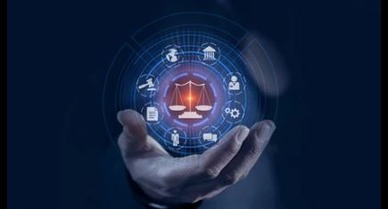Media Laws, Rights & Privacy Of Celebrities
Introduction
The media believes that it is their fundamental right to capture and publish all information about celebrities about matters of “public interest” or “public concern” that arise from the “Freedom of the Press” guaranteed by Article 19 of the Constitution. Celebrities have objected to this because it interferes with their personal lives and their right to privacy. Every individual has the right to control his or her own life and image as it is portrayed to the rest of the world. Unless with his/her consent, the right to control the commercial use of his/her own identity should be exclusively theirs.
[Image Sources : Shutterstock]
Protection Under Copyright Act, Licensing & Contractual Issues for the Celebrities
A celebrity is a well-known person. In today’s world, a celebrity is defined as any author, actor, model, athlete, musician, politician, or another person who captures the public’s attention. They are classified as celebrities based on how the public perceives and views them. They have a large following and influence many people both professionally and in other ways.
Copyright And Licensing Questions
India’s film industry produces the most films in the world, with a national and international audiences. However, the industry is still dealing with a slew of legal issues daily.
● Cable, Video & Music Piracies
The illegal production and sale of videos/movies are referred to as video piracy. Cable Piracy is the illegal transmission of films via a cable network, whereas Music Piracy is the illegal recording and sale of music. This recorded music is frequently sold at significantly lower prices than market rates, resulting in massive losses for music producers. The Indian Copyright Act of 1957 forbids and punishes acts of piracy. Furthermore, the Information Technology Act of 2000 makes it a crime to copy or transfer data from another person’s device without their permission. People frequently record movies on their mobile phones as a result of this trend. It is therefore critical to emphasize that, according to the Cinematograph Act of 1952, recording movies in the theatre with any recording device to create a pirated ‘cam print’ of the movie is illegal.
Licensing
It denotes that the film is based on a previously published novel, book, or artistic work. Certain rights must be obtained from the actual copyright owner by the filmmakers while converting this novel into a film
Copyrights
While executing the agreements, the Producer must specify the rights under Intellectual Property Rights, such as the screenplay, music, soundtrack, right to use the title of the film, brand names used in the film, actor performances, and so on, because each of these rights may belong to the same or different individuals. In this regard, the producer must assert copyright over all aspects of the film under the provisions of the Indian Copyright Act, 1957.
CONTRACTUAL ISSUES Various contracts are signed and executed by various
performers/artists and stakeholders. These agreements include the following:
● Artist agreement – When an artist does business with a company, an agreement is made between the parties because art is inherently subject to many Intellectual Property issues. Certain essential components of such agreements include the parties’ details, duration, royalty, artist’s rights, payment terms, cancellation, and agreement
modification.
● Broadcasting Agreement- As the name implies, the broadcasting agreement grants broadcast channels exclusive rights to broadcast. According to Section 2 (dd) of the Copyright Act of 1957, the broadcast is defined as communication to the public via wired or wireless medium. The most common example is the IPL, which had its
broadcast rights with Sony Network Picture for the first ten years before being acquired by Star India. This contract addresses issues such as licensing rights, intellectual property rights, promotions and sponsorships, the duration of such broadcasting rights, payment, and so on.
● Films Agreement – Producer, director, actors, crew, casting, scriptwriter, song composer, singers, and so on are examples of these categories. Each category necessitates an agreement outlining the parties’ responsibilities and obligations, as well as mutual dependencies and independent copyrights. The following are some examples of common film industry agreements:
1. Rights Purchase Agreements – These agreements are drafted and signed before the production of a film by the producer and the scriptwriter or songwriter. These are carried out to ensure that the producer retains all rights to the story or script written and that the scriptwriters or lyricists are compensated for their efforts.
2. Director’s Employment Agreement – The director is the head of the filmmaking creative department. He goes over casting, locations, costumes, props, and so on. The agreement between the director and the production house ensures the director’s roles, duties, and obligations as he oversees all other aspects of
filmmaking.
3. Production Contracts – After the director, producer, and script are ready, three categories come into play. They include the crew, the cast, and the location. This agreement comprehensively mentions the duties of actors, cases where they are injured while shooting, the type of acts they will be performing, the Non-Compete Clause, compensation of the actor, the term of the project, amenities provided to
the actor, production rules, and so on.
Celebrity IP rights versus privacy rights
The media believes that it is their fundamental right to capture and publish all information about celebrities about matters of “public interest” or “public concern” that arise from the “Freedom of the Press” guaranteed by Article 19 of the Constitution. Celebrities have objected to this because it interferes with their personal lives and their right to privacy. Every individual has the right to control his or her own life and image as it is portrayed to the rest of the world. Unless with his/her consent, the right to control the commercial use of his/her own
identity should be exclusively theirs.
In a recent case, Krishna Kishore Singh vs Sarla a Saraogi, Krishna Kishore Singh, the lateactor Sushant Singh Rajput’s father, filed a suit in the High Court of Delhi to protect his son’s privacy and reputation are getting infringed. Krishna Kishore Singh stated in court that no book, film, or television series based on his son’s life should be made without his permission. After reviewing similar relevant cases and precedents, the court dismissed the suit, ruling that celebrity rights cannot be granted or recognized without regard for the actual concept of The
Right to Privacy.
Conclusion
In India, there is no clear statutory provision within intellectual property laws that protects celebrities’ personality rights, and courts currently dealing with celebrity cases rely on constitutional protection under Article 21 of the right to privacy and publicity. There is only a provision for secondary rights to prevent public performances, broadcasting, or recordings made without the performers’ consent, whereas the performers do not have the exclusive right
to authorize public performances and broadcast them.
Given the current situation in which these celebrities’ privacy is being invaded, there is an urgent need to recognize celebrity rights within the realm of intellectual property rights and to provide them with protection against substantial similarity of their work. By repealing the Consumer Protection Act 2019, the government recognized the critical need to protect consumers from misleading advertisements for products endorsed by such celebrities. In light
of the growing number of endorsement deals involving famous people, the government has now imposed a penalty on the endorser for promoting misleading advertisements. The legislature grants statutory commercial recognition in the celebrity rights aspect to fill legal gaps and keep up with the rapid commercialization of celebrity status.
Author: Aratrika Manhas, A Student at New Law College, Bharti Vidyapeeth Deemed to be University, Pune, in case of any queries please contact/write back to us at support@ipandlegalfilings.com or IP & Legal Filing.
References
● Lisa Lukose & Shilpika Pandey, PROTECTION OF CELEBRITY RIGHTS A
COMPARATIVE ANALYSIS OF RELEVANT IPR LAWS IN US, UK AND INDIA
● India, Annals of R.S.C.B., ISSN:1583-6258, Vol. 25, Issue6, 2021
● https://www.mondaq.com/india/trademark/777368/celebrity-rights-is-it-important-in-india
● https://www.lexology.com/library/detail.aspx?g=c2428891-d91a-4fbc-b5a4-a6e0cb9e3913
● https://spicyip.com/2014/05/bollywood-music-awards-and-personality-rights-sonu-nigam-v
-mika-singh-and-ors.html
Author: Aratrika Manhas, B.A. LLB.-3rd year,
New Law College, Bharti Vidyapeeth Deemed to be University, Pune



